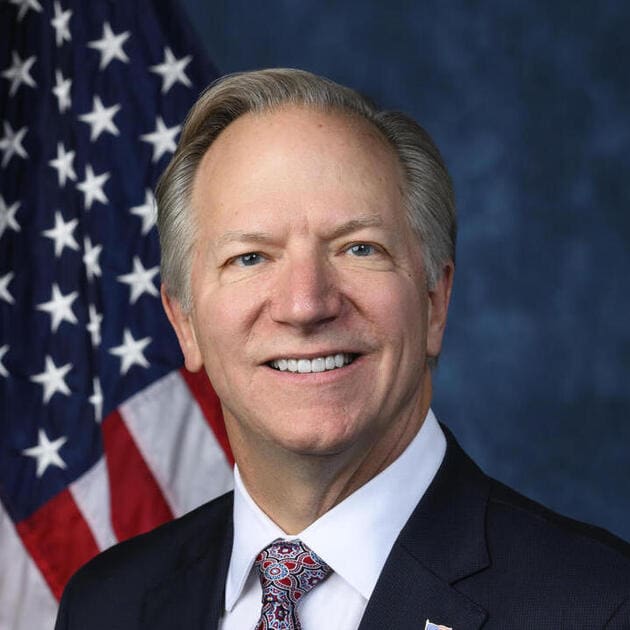Recently, Drs. Travis Miller, Chair of the College’s Advocacy Council and J. Allen Meadows, Executive Director of Governmental Affairs, had the opportunity to catch up with Congressman Robert Onder, MD, FACAAI (R-MO-03) who was elected in the third district of Missouri to serve in the 119th Congress. Some edits have been made for clarity and ease of reading that do not impact the message.
Dr. Miller: For allergists who haven’t had a chance to meet you before, please tell us a little bit about yourself.
Dr. Onder: I am a lifelong Missourian – my parents raised me, my sister, and my brother in St. Louis County. My parents are both still with us; one’s 93 and one’s 87. I met and married my wife, Allison, 30 years ago. We raised our family in St. Charles County, Missouri, which is just west of St. Louis County. We have six children – the oldest is 28 and the baby is 19. We’ve been very blessed.
Of course, allergy and immunology is a wonderful specialty. I did all my training at Washington University School of Medicine in St. Louis. I had a private practice for about 32 years. I ended up in forced retirement because of this congressional job. Congress has ethics rules that state you cannot practice a profession while serving in Congress. I got elected to the Missouri House back in 2006 and the Missouri Senate in 2014.
I’ve been a fierce advocate for our profession and for our patients in both bodies, and I really appreciate the support a lot of College members showed me last summer, when I was running in the primary. I won a Republican primary despite being outspent by about $2 million. My main opponent was a United Healthcare lobbyist.
Dr. Meadows: We’re always quick to point out you ran against a UHC lobbyist. So, here’s the hardest question I’m going to ask you. What are the chances we see a doc-fix in a reconciliation bill? And what do you think the timeline’s going to be?
Dr. Onder: I think it’s probably ambitious, but I expect to see a reconciliation bill out of the House, by late May or June, and then through the Senate, and done by September. Basically, leadership has promised the Doc Caucus that a Medicare fix, a Doc fix, will be in the reconciliation bill.
Dr. Meadows: Your first congressional term is for two years. What are your goals?
Dr. Onder: I am a co-sponsor on the Doc Fix Bill. I am a co-sponsor on some legislation to fix the surprise billing law (No Surprises Act). Honestly, there was nothing necessarily wrong with the original bill. Nothing’s perfect, but predictably, insurance companies have misconstrued and contorted the surprise billing law to deny payment. We’re all very familiar with that phenomenon.
I’ll tell you, one of my goals right now is to get United Healthcare to back down on the ridiculous idea of adopting Medicare’s rule about only paying us in (1) cc (aliquots) for allergy immunotherapy extract. That, along with their (policy) change on biologics, would be devastating to an allergy practice, as you know.
I want to emphasize that I met with the United Healthcare lobbyists and a couple of executives just last week. I really drove this point home. I emphasized the importance of immunotherapy, the cost effectiveness of immunotherapy. I also pointed out that if they make it economically unviable to provide this valuable treatment to patients, allergists are going to have to stop doing it – just like many of us did when venom immunotherapy became something we lost money on for every patient we treated.
The second part of Drs. Miller’s and Meadows’ interview with Congressman Bob Onder, MD will be featured in a future Advocacy Insider article.
The Advocacy Council – ADVOCATING FOR ALLERGISTS AND THEIR PATIENTS.



